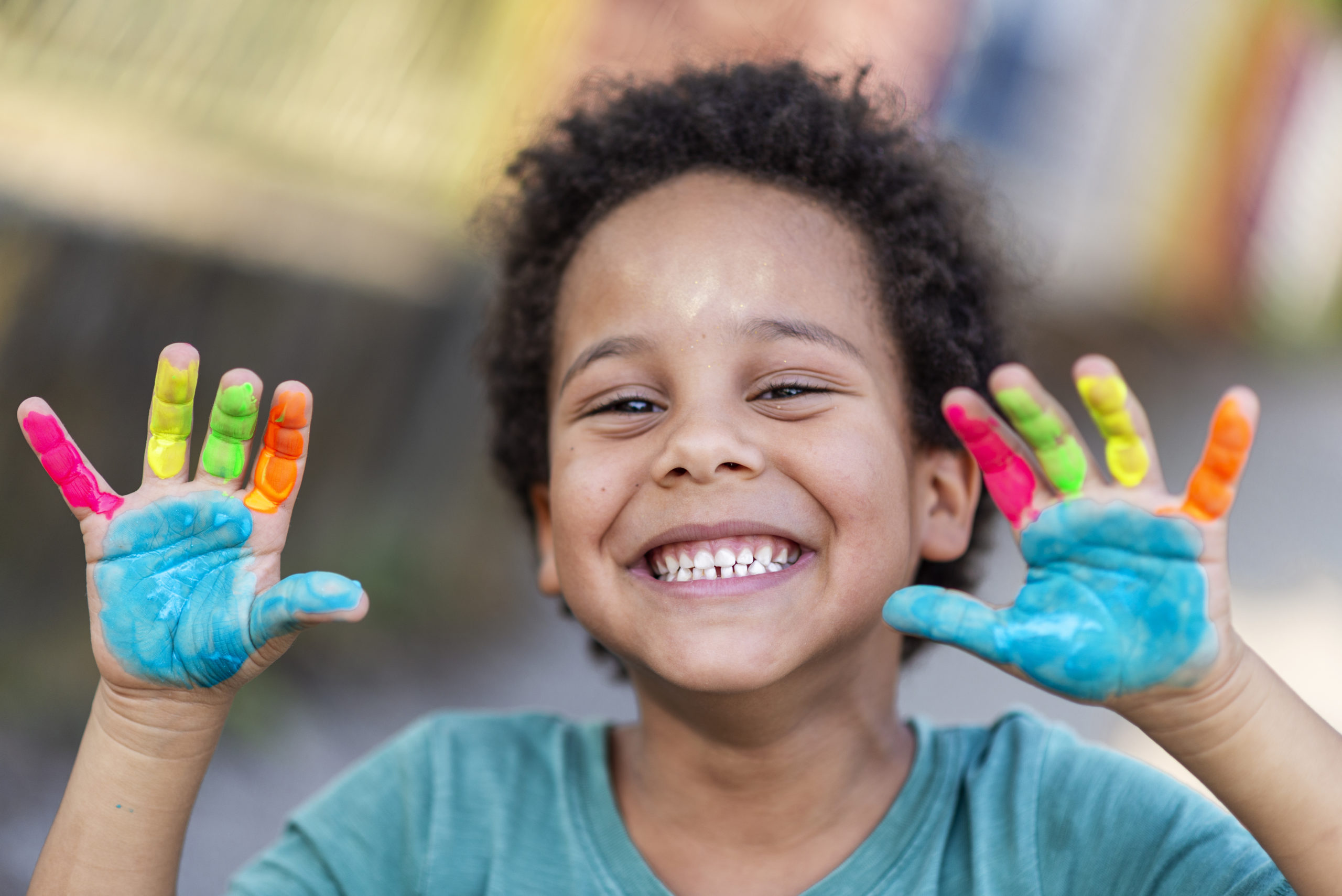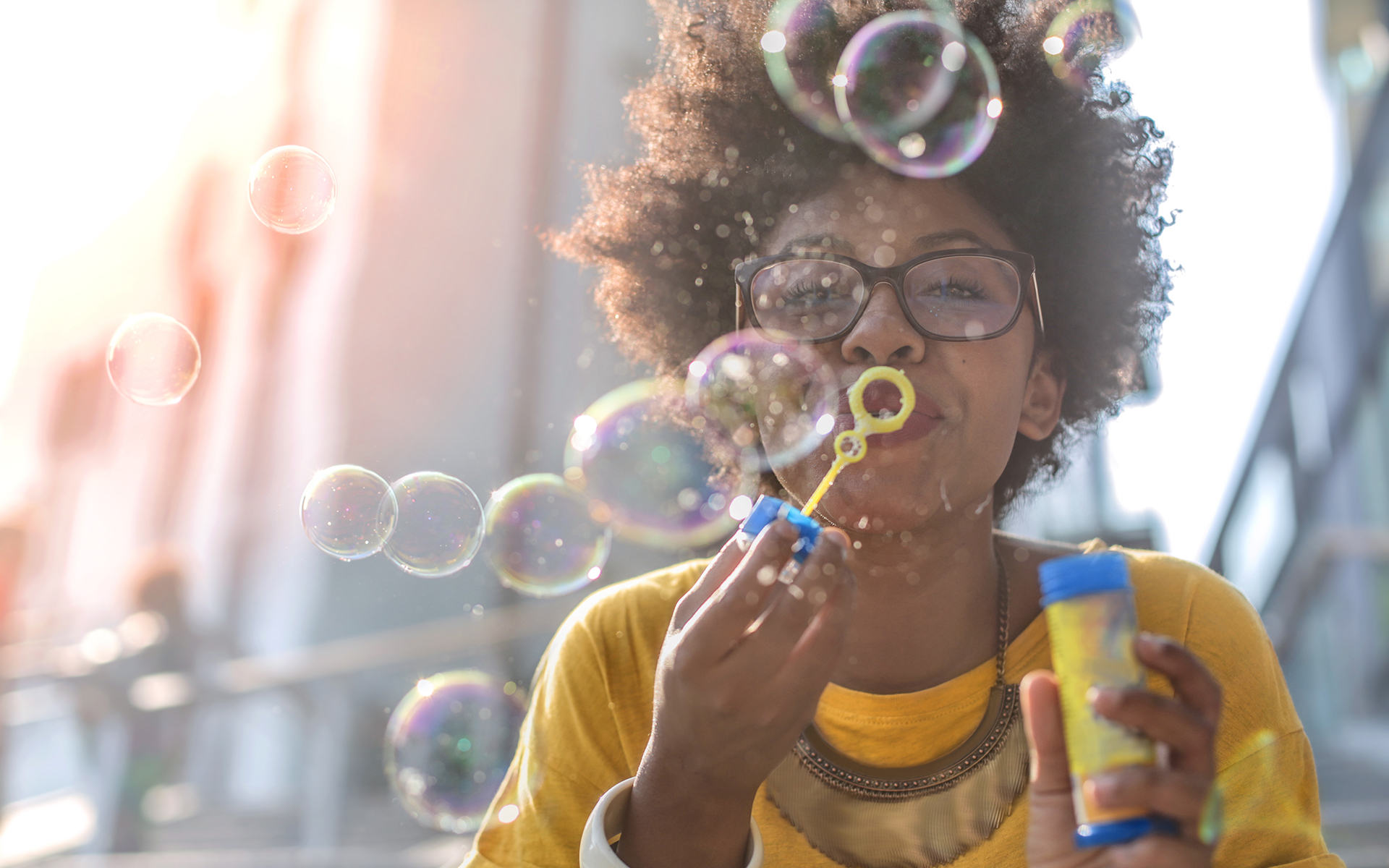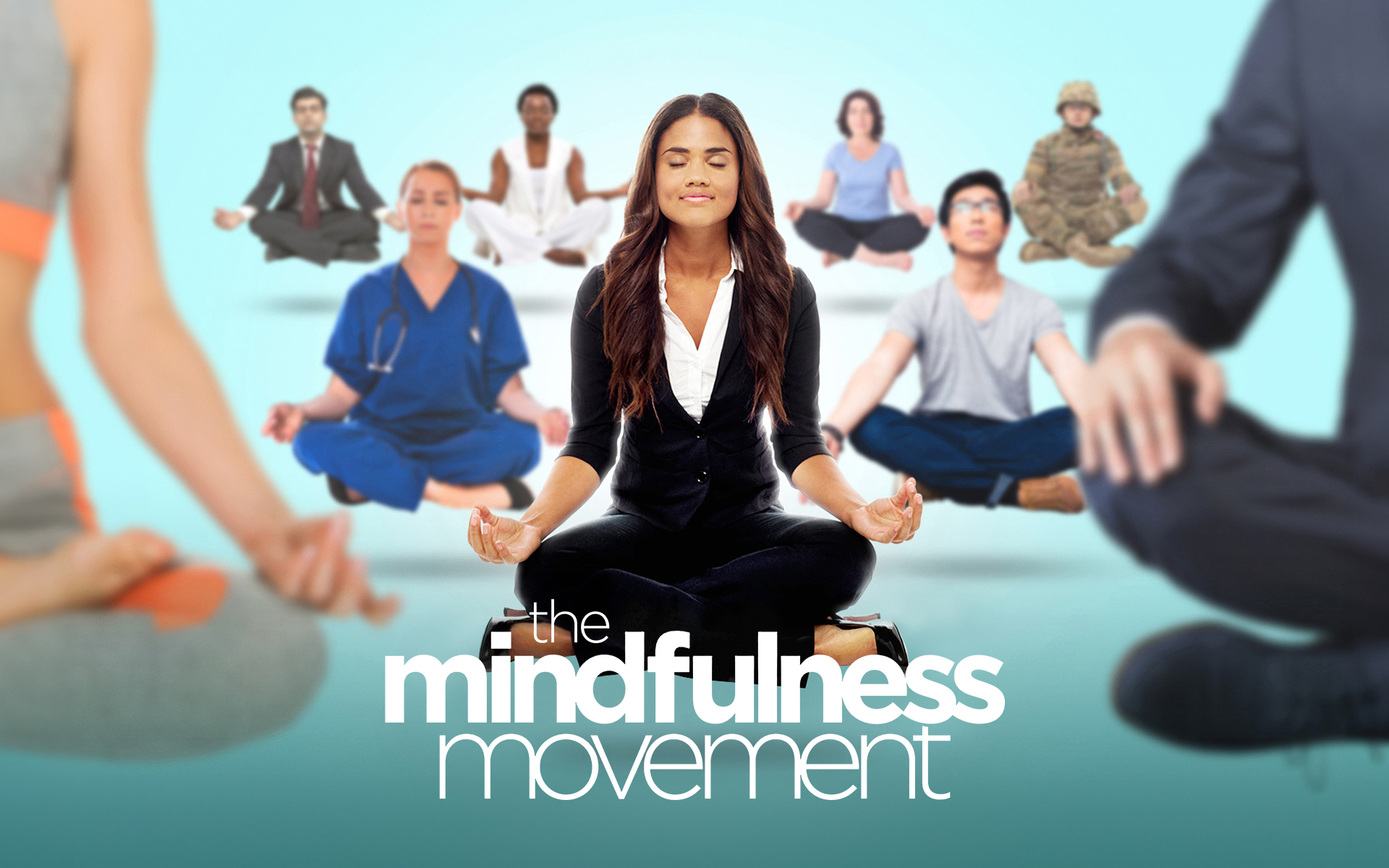We often place high value on happiness and the happiness of those around us. But what does being happy actually mean? Ahead of the International Day of Happiness, Mindful asked 12 mindfulness teachers: What does happiness mean to you? Here are their answers.
Michelle Maldonado
Coauthor of A Bridge To Better: An Open Letter To Humanity & Resource Guide and founder of Lucenscia.
“I love the question: What does happiness mean? But at the same time, there is a quality of happiness that feels very fleeting to me. So when I think about happiness and I feel what that means to me, there is an element that’s a little bit more elevated: That is joy.
If you look up happiness, sometimes you’ll see it can range from contentment to this incredible joy. And that’s where I tend to fall on the spectrum. Not because anything big has to happen, I find happiness and joy in the smallest of things.
I find such joy and happiness when I see people finding themselves and loving themselves fully. There’s just nothing more remarkable than being witness to someone who has discovered how important they really are. That is joyful, that is jubilant, and beyond happy.”
Dr. Sará King
Neuroscientist, medical anthropologist, and founder of MindHeart Consulting.
“Happiness, to me, is very rich, rewarding, and complex. It’s not diametrically opposed to suffering, but rather, happiness is something that I can experience when I know that I’m really being held in the integrity of my community and my family and what it is that I am rooted in, what it is that I stand for.
Happiness, to me, is about solidarity. Happiness can also be about justice. But when I say justice, I mean loving awareness in action. Knowing that wherever I am, when I show up, even if it is a situation that is inherently challenging, a situation where I might not necessarily agree with everyone around me, I know that I am arriving with a set of intentions. The intention to embody loving-kindness, forgiveness, gratitude, and radical friendship. And when I know that I carry this energy in my mind and in my heart and within my being, then every moment becomes a sacred offering and an opportunity to really open up to and unfurl to greater levels of understanding, interconnectedness, and really how phenomenally interdependent we all are and have to be in this world.”
Steve Hickman
Associate Clinical Professor in the UC San Diego Department of Family Medicine & Public Health, and executive director of the Center for Mindful Self-Compassion (MSC).
“Happiness, as most of us habitually think of it, is a myth. I say this because we think of it as a destination at which we arrive or a steady state that we achieve. But when one stops and actually thinks of such a thing, it’s hard to imagine that being desirable. Do we walk around with a permanent idiot-like grin on our faces and everything (from our children’s hardships to the toilet that needs scrubbing) is a joyful endeavor? That sounds both ridiculous and painfully unrealistic. Instead, what if happiness was our capacity to “take in the good” as Rick Hanson says. To open up to joy when it arises (and it arises much more often than we realize, if we mindfully pay attention) and let it make an impression on us. As Mark Nepo suggests, maybe we can ‘unglove ourselves so that the doorknob feels cold and the car handle feels wet and the kiss goodbye feels like the lips of another being, soft and unrepeatable.’ Now that kind of happiness sounds delicious!”
Rashid Hughes
Meditation teacher, yoga instructor, restorative justice facilitator, and cofounder of the Heart Refuge Mindfulness Community.
“Happiness is the natural feeing of fulfillment that we feel when our minds are resting in awareness. When there is no rejecting or holding on to our inner life, we experience our inherent happiness of simply allowing. There is no path to happiness except happiness itself. When we are happy, we know that happiness is truly who and what we are.”
Caverly Morgan
Author of A Kids Book About Mindfulness and founder of the nonprofit Peace in Schools.
“Happiness is the very nature of our being.
Not the happiness that is the opposite of sadness—not glee.
Rather, deep well-being. Peace. Ease.
We are habituated to believe that happiness can be found outside ourselves and through objects—a different partner, a new job, more money.
In truth, when our attention is no longer exclusively directed toward such objects, we can more deeply experience what’s innate—our very being.
Mindfulness guides us there. Mindfulness guides us here.
Releasing distractions and turning toward presence allows us to rest in our own being—allows us to experience the happiness that is not diminished by circumstances and/or shifting objects.
Here, we know ourselves as the happiness we long for.”
Judson Brewer
Director of Research and Innovation at the Mindfulness Center, associate professor in psychiatry at the School of Medicine at Brown University, and research affiliate at MIT.
“Happiness is not wanting.
Getting yanked around by my emotions and cravings is exhausting—wanting more of this, wanting less of that keeps me running around in circles. Even excitement has a contracted, restless, driven quality to it. Happiness is seeing what my needs are, exploring how simply I can meet them, and letting all the rest go: resting in that open space that comes with each moment of not being caught up.”
Barry Boyce
Founding editor of Mindful and mindful.org.
“To be honest, happiness has always seemed a bit of slippery notion to me. The word just covers too much territory. I’m supposed to be wearing a huge grin all the time? How can I be happy when there’s so much suffering around? It can sound so Pollyanna. I do appreciate the distinction between hedonic and eudemonic happiness, the first having to do with sensual pleasure, the second with well-being. I prefer to think in terms of training in well-being, contentment with what is presented, composure—so that I can help to relieve pain and share the basic joy of drawing another breath with everyone, as opposed to chasing after one thing or another that may make me happy, only to disappear in the next moment.”
Ashanti Branch
Founder and executive director of The Ever Forward Club.
“Happiness in my life is like waves in an ocean. It comes and then it goes. Some waves are bigger than others.
It’s almost like this idea that I have tried to keep in my mind ever since I went to my first meditation retreat: How do you stay equanimous? How do you not get too happy about things, and not too sad about things? How do you just stay in the middle? And how do you just kind of just take it as it comes?
So I think sometimes, what happiness means to me is just taking it—whatever is coming. The good, the bad, the ugly, the frustrating, all of it. How do I just stay in a place of saying I’ve got something to be grateful for?”
Elisha Goldstein
Author of Uncovering Happiness: Overcoming Depression with Mindfulness and Self-Compassion and founder of the Mindful Living Collective.
“Connection is at the epicenter of happiness. When we feel connected to ourselves and others, we feel safe and there is more opportunity for love to flow within us and between us. Recognizing the interconnection of all things allows us to be kinder to ourselves and all things, which is healthy for us mentally and physically! This only makes us more resilient and feeds an upward spiral.”
Cara Bradley
Author of On The Verge: Wake Up, Show Up, and Shine, founder of the award-winning Verge Yoga Center, and host of the On The Verge mental fitness podcast.
“Happiness to me is a sense of being alive. When I’m happy, it feels like bubbles through my whole body. My senses are lit up, my mind is awake and clear, and I feel like the wind is just flowing through every part of my being. I love being happy.”
Elaine Smookler
Faculty, The Centre for Mindfulness Studies, counselor, eMindful, Inner Wisdom columnist, Mindful magazine.
“Happiness for me is being open and curious about whatever comes. Happiness is being brave and saying yes to the dance even when I trip over my own feet. Happiness is what bubbles up when I am friendly, playful, warm, and inviting. Happiness is the sweetness of caring for others. Happiness is the joy of living life in technicolor. Happiness is welcoming, noticing that the journey is so wild and dazzling. Happiness is having allies to play with, even if those playmates are only there for the length of an elevator ride. Happiness is sharing wacky, pop-out moments of outrageousness, wherever it can happen. Happiness is always the outcome of choosing kindness and including myself in the whole wondrous circus of life.”
Nate Klemp
Coauthor of The 80/80 Marriage: A New Model for Happier, Stronger Relationship and a founding partner at Mindful.
“Happiness isn’t an instantaneous hit of pleasure. It’s not feeling great or looking great. It’s not a title or your follower count on Instagram. It’s not the dollar amount in your bank account or the size of your home.
So what is happiness?
It’s a mindset—accepting, loving, and even feeling grateful for things as they are, not as you wish they were.
It’s a purpose—devoting your fullest self to the people, projects, and causes you care deeply about.
It’s a way of being—finding small opportunities to touch what Thoreau called the “solid bottom” of reality: the present moment.”
READ MORE
Sparking Joy: A Mindfulness Practice for Everyday
Joy is a capacity we all have that can be trained and developed—It is a primary component of psychological well-being, encompassing moments of appreciation, enduring contentment, and a sense of confidence and gratitude.
Read More
How Habits and Happiness are Linked
Happiness doesn’t always make us feel happy, says New York Times bestselling author Gretchen Rubin. That’s because it’s a complex state of well-being that requires awareness of both positive and negative emotions, personal values, temperaments, and habits.
Read More
Are You “Happy”?
The real meaning of happiness isn’t what you think.
Read More
A Practice to Reclaim Your Joy with Sebene Selassie
Experience the truth of your inherent belonging by connecting to the essential elements of the earth and remembering that we’re all made of the same stuff.
Read More










